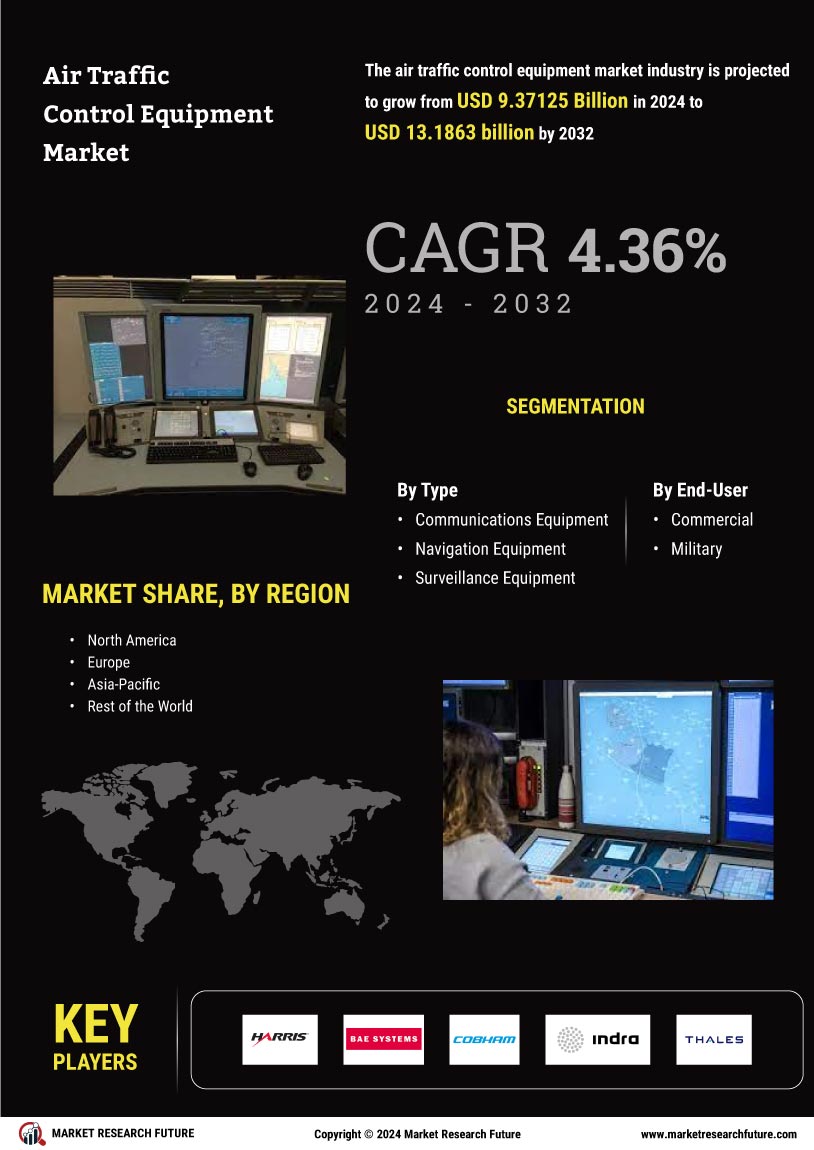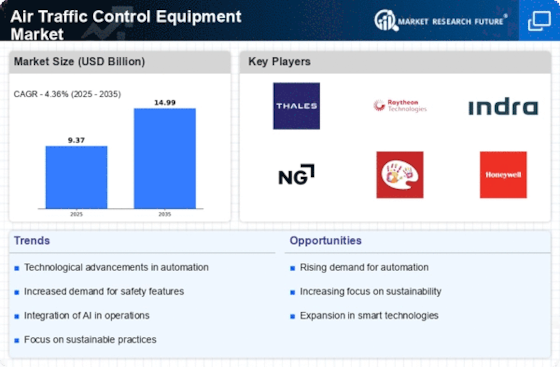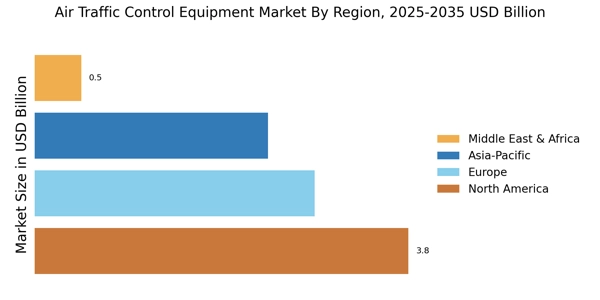Air Traffic Control Equipment Market Summary
As per Market Research Future analysis, the Air Traffic Control Equipment Market was estimated at 9.371 USD Billion in 2024. The Air Traffic Control Equipment industry is projected to grow from 9.78 USD Billion in 2025 to 14.99 USD Billion by 2035, exhibiting a compound annual growth rate (CAGR) of 4.36% during the forecast period 2025 - 2035
Key Market Trends & Highlights
The Air Traffic Control Equipment Market is poised for substantial growth driven by technological advancements and increasing air traffic volume.
- Technological advancements are reshaping air traffic control systems, enhancing efficiency and safety.
- North America remains the largest market, while Asia-Pacific is emerging as the fastest-growing region in air traffic control equipment.
- The communications equipment segment dominates the market, whereas the surveillance equipment segment is experiencing rapid growth.
- Increasing air traffic volume and regulatory compliance are key drivers propelling market expansion.
Market Size & Forecast
| 2024 Market Size | 9.371 (USD Billion) |
| 2035 Market Size | 14.99 (USD Billion) |
| CAGR (2025 - 2035) | 4.36% |
Major Players
Thales (FR), Raytheon Technologies (US), Indra Sistemas (ES), Northrop Grumman (US), Leonardo (IT), Honeywell (US), Frequentis (AT), Aireon (US), SITA (CH)


















